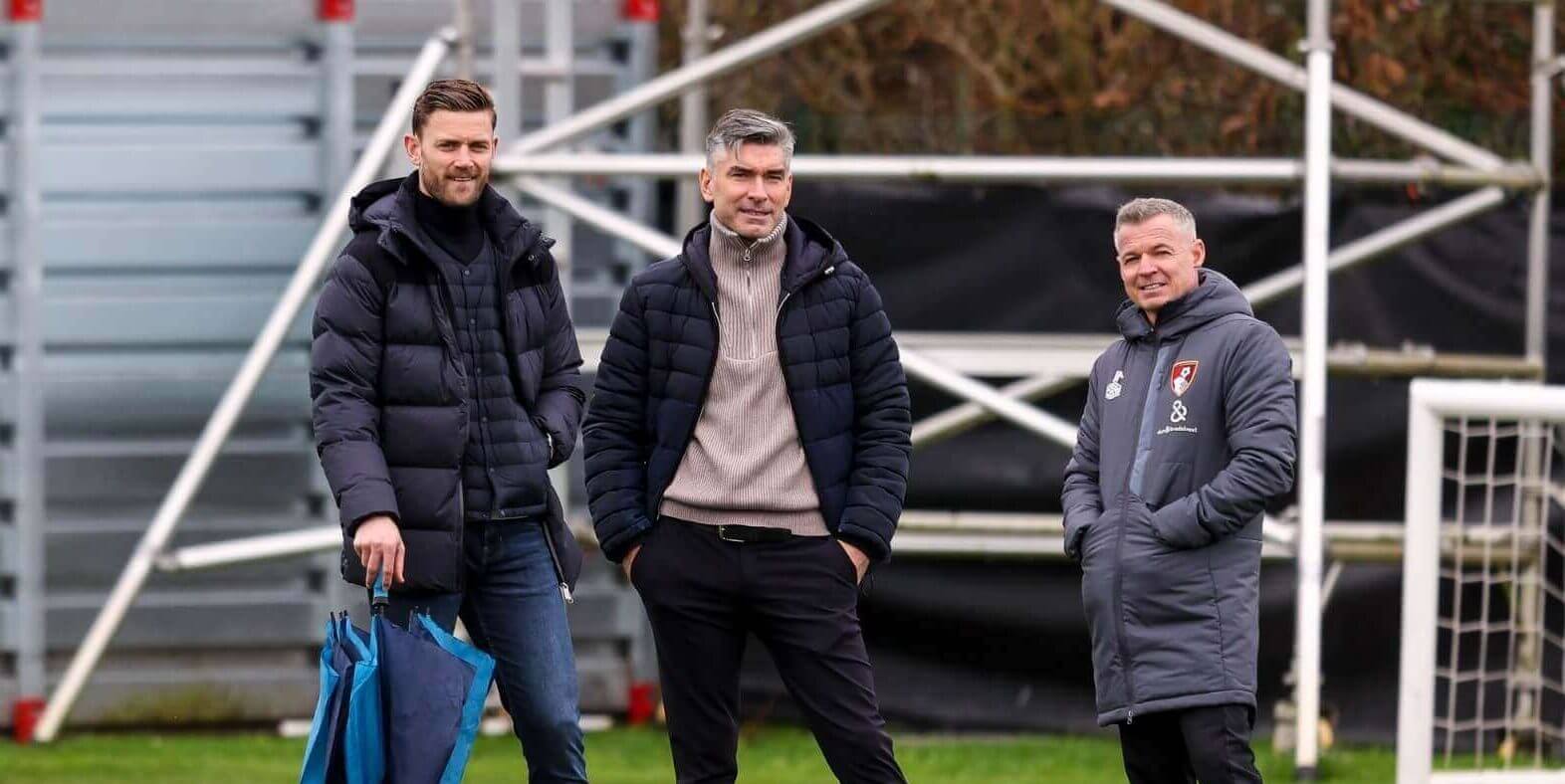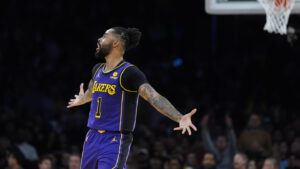As a footballer, Richard Hughes largely went under the radar.
Barring dedicated followers of Portsmouth, where he spent nine seasons, mostly in the Premier League, and Bournemouth, where he had two spells, it is unlikely many will have dwelt on an admirable but unglamorous playing career.
Certainly, few would have had him down to one day land one of the most coveted jobs in world football. Yet it is Hughes that Liverpool appear to want as their new sporting director, helping shape the club’s future without Jurgen Klopp.
Hughes’ proposed appointment — following 10 largely successful years as part of Bournemouth’s recruitment team, including being technical director since 2016 — comes after owners Fenway Sports Group took guidance from Michael Edwards, Liverpool’s former sporting director, who has himself discussed working with the organisation again, albeit with much broader responsibilities.

GO DEEPER
Edwards close to FSG role with Hughes as Liverpool sporting director
Hughes’ appeal for Liverpool is not simply due to his relationship with Edwards, who would in effect become his boss at FSG. He has an impressive body of work behind him, but there is no doubt the bond between them — forged when Hughes was an unheralded figure in Portsmouth’s midfield and Edwards worked at the club as one of English football’s first performance analysts — has been instrumental.
One of Hughes’s first tasks at Liverpool will also be his most daunting – helping to recruit a manager to replace Klopp. It was important to FSG that the club had a senior sports executive at the centre of this process because it would allow them to present a structure to potential candidates, including Xabi Alonso, their preferred choice.
Last summer, Hughes brought Andoni Iraola to Bournemouth as the club’s new head coach. It will surely be helpful to Hughes and by extension to Liverpool that Iraola is represented by the same management agency as Alonso.
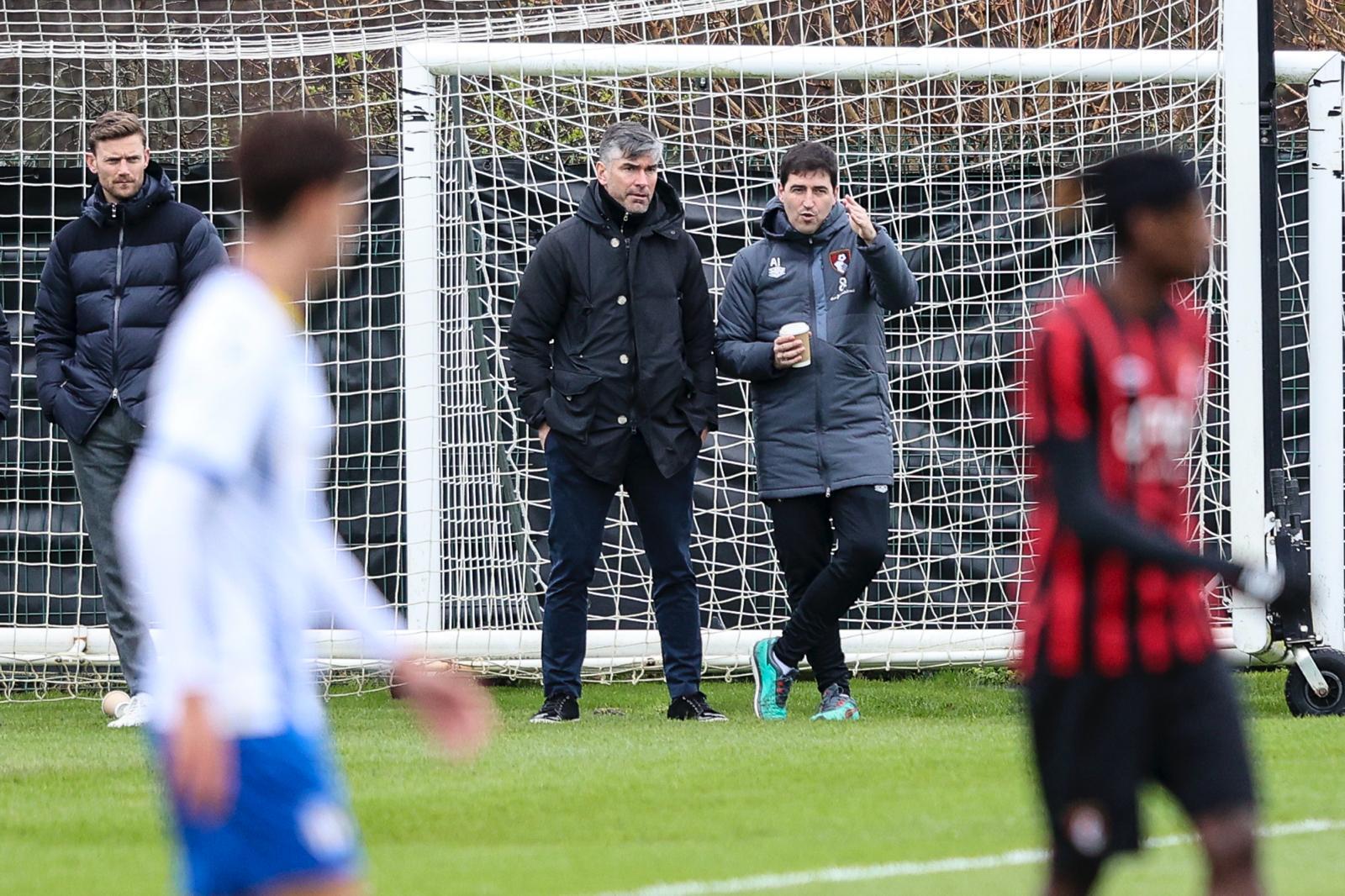
Richard Hughes with Bournemouth manager Andoni Iraola (AFC Bournemouth)
The decision to remove Iraola’s predecessor was viewed as controversial because Gary O’Neil, a former team-mate of Hughes’ at Portsmouth, and another friend of Edwards, had signalled his promise as a manager by rescuing the club’s 2022-23 campaign.
There has been more evidence of O’Neil’s talent since taking over at Wolverhampton Wanderers. Yet Hughes concurred with Bournemouth’s owner Bill Foley and chief executive, Neill Blake, that Iraola was further along in his development and that his hiring would help Bournemouth improve quicker.
There was no room for sentiment. Bournemouth finished 15th under O’Neil last season and while the latter’s impact at Wolves has invited debate about whether he should have been sacked, given the club are only two places higher under Iraola, the threat of relegation is far more distant this season. Ultimately, that has vindicated a decision for a club that will always be doing well in the Premier League providing it is not in contention for the drop.
Liverpool’s priorities are at the opposite end of the table and one of the challenges for Hughes will be how he copes with a much sharper and nevertheless wider focus on the success of his work.
At Bournemouth, Hughes worked with five managers, yet four of those have been in the last four years, as the club has fought to reestablish itself in the top flight after relegation in 2020 was followed by the departure of long-serving manager Eddie Howe.
Hughes had known Howe since they were teenagers, starting their playing careers at Bournemouth, and the pair also joined Portsmouth within months of one another. This is where they first encountered Edwards.
Both Hughes and Blake wanted to source Howe’s replacement externally but time was in short supply that summer (of 2020) due to the short gap between seasons due to the Covid-19 pandemic, and the former owner, Maxim Demin — who was keen to sell the club — had an eye on finances. Instead, Howe’s assistant Jason Tindall was promoted into the senior role.
When that decision didn’t work out, Jonathan Woodgate was appointed on a short-term contract. Hughes then backed the permanent appointment of Scott Parker, who had achieved the same leap as Bournemouth were trying to make by taking Fulham back to the Premier League.
After that target was reached, Parker departed early last season due to differences in opinion over the transfer budget. Hughes explored the possibility of appointing Marcelo Bielsa or Iraola, whose impressive record at Rayo Vallecano, taking an unfashionable club to promotion and then into mid-table La Liga with a progressive playing style, caught the eye.
Iraola was not available at that point, but when he left Rayo at the end of last season, Bournemouth’s board made their move despite O’Neil’s impressive performance. Hughes and his staff believed that, while O’Neil was an excellent up-and-coming coach, Iraola’s record offered greater guarantees.
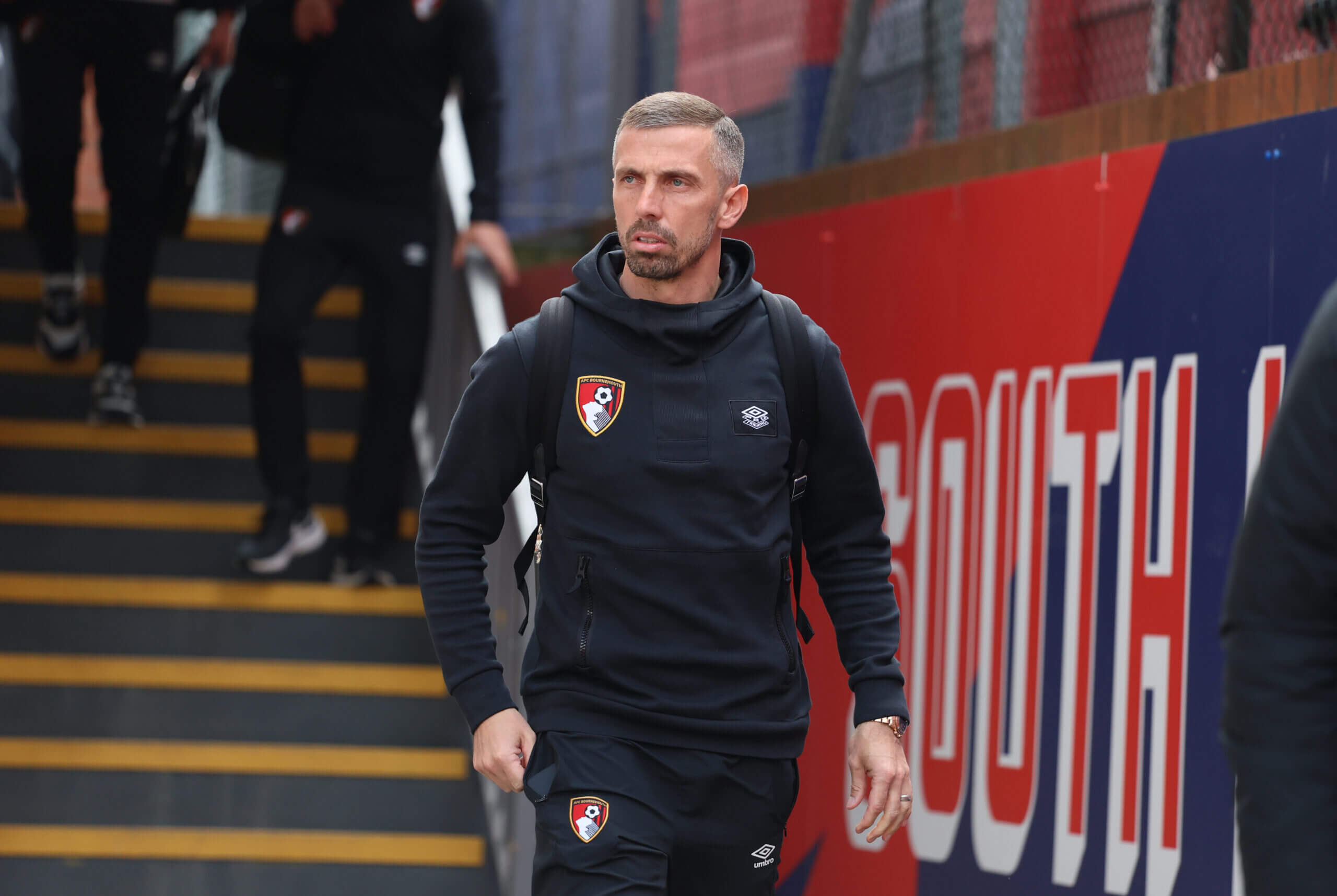
Gary O’Neil left Bournemouth despite an impressive season in charge (Tom Dulat/Getty Images)
On-field performances will be a key barometer of Hughes’ success, but he will also be judged on transfers. Given that Howe won promotion into the Premier League in 2015 with a team that had an average age the wrong side of 25, there was an acceptance at Bournemouth that the club would have to change that profile in order to remain in the top flight.
Initially, this involved more pragmatic experienced-based signings. Yet some of the older, physically declining footballers that joined over the next five years such as Sylvain Distin, Jermain Defoe and Jack Wilshere did not really fit in.
Gradually, Bournemouth started operating in a younger market. Yet as the team drifted towards relegation in 2020, Howe, and by extension Hughes, drew criticism for the money spent on players like Dominic Solanke, Jordon Ibe and Brad Smith. Each of these had arrived from Liverpool, where Edwards was operating and championed for raising so much cash from three players who were out of favour under Klopp.
Hughes warned in 2019 that it takes time for players to settle in a new environment and it was wiser to “look at the product after a year and a half rather than a week and a half down the line”.
It would take Solanke roughly that amount of time to find his feet, though by then Bournemouth were in the Championship. He has since proven to be an astute investment, who Bournemouth could make a profit on if they were to engage some of the leading clubs allegedly wanting to sign him as a 26 year old.
Hughes would also engineer deals for Tyrone Mings (from Ipswich Town), Benik Afobe (Wolves), Max Gradel (Saint-Etienne), Lewis Cook (Leeds United), Nathan Ake (Chelsea), Aaron Ramdsale and David Brooks (Sheffield United), Jefferson Lerma (Levante), Phillip Billing (Huddersfield Town), Arnaut Danjuma (Club Bruges) and Lloyd Kelly (Bristol City).
All but one of these players either came from abroad or the lower leagues of England and have, either at Bournemouth or elsewhere, proven themselves as being capable of playing at a higher level. The exception is Ake, who was not in Chelsea’s first team when he moved to Dean Court, but has since emerged as a key component in Manchester City’s defence under Pep Guardiola.
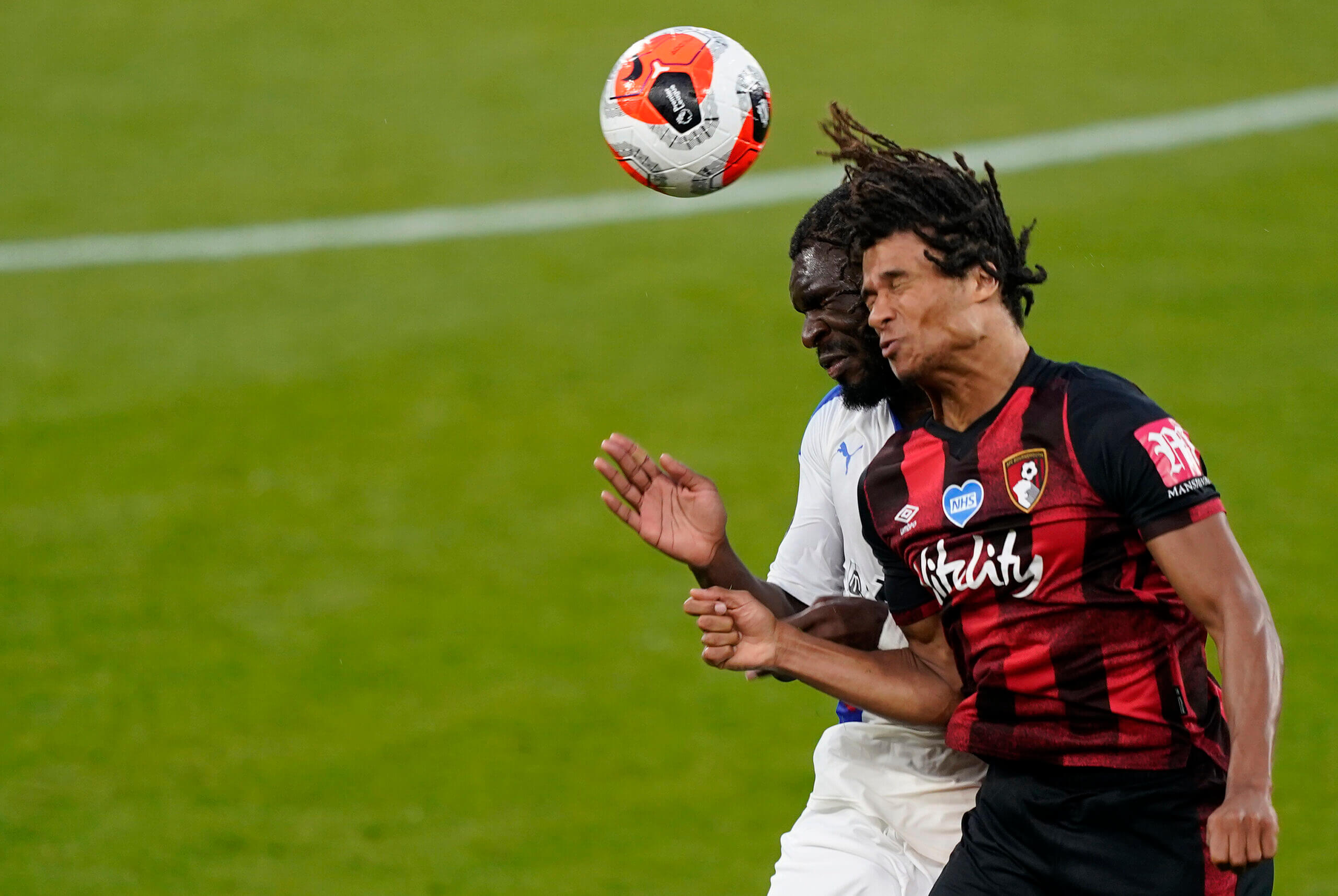
Nathan Ake became a star at Bournemouth (Will Oliver/AFP via Getty Images)
More recently, Hughes has been able to bring exciting young foreign talent to the club that was previously considered out of reach, as well as highly regarded Championship players. Marcus Tavernier, Antoine Semenyo, Luis Sinisterra, Alex Scott, Marcos Senesi, Justin Kluivert have all had a good impact although Tyler Adams has barely been seen since he arrived from Leeds in August after Chelsea pulled out of a deal to sign him following his medical.
Since Hughes’ appointment as Bournemouth’s technical director, the club’s recruitment department tripled in size, though it remained small by Premier League standards. Hughes believed that a tighter knit group helped breed better cohesion. The group included Simon Ward, the brother of Julian, who succeeded Edwards briefly at Liverpool.
Hughes, a rare example of a player who made a success of a technical director role in the Premier League, was not visible on a match day at Bournemouth because he was scouting potential signings. His role was not a public facing one, either. Though he rarely met the media, in 2019, he described his job as “loading (Howe’s) gun to fire as many good bullets as possible”.
Howe would have the first and the last word on all transfers and Hughes was active in between, handing over financial particulars to be dealt with by the CEO, Blake. In a different interview, Hughes suggested that Howe had the ability to “make bad decisions look decent and decent decisions to look great”, a phrase which may have been uttered about Klopp at Liverpool.
Liverpool v Manchester City could help decide the Premier League title race – and The Athletic is analysing every angle that matters.
Hughes’ playing career taught him about the politics of football and its sharper edges, experiences which he would need to lean on at Liverpool.
In 2005, while at Portsmouth, Hughes was reminded of his responsibilities by the Football Association after betting that Harry Redknapp would return to the club as manager. He recalled the incident in an interview with The Athletic as being especially troubling because he considered himself a “goody two-shoes”.
His spell at Fratton Park also ended painfully, with a contract dispute playing out across two years. There were claims that Hughes and team-mate Michael Brown refused to play for the club, but Hughes later suggested he was asked to leave the team bus on the way to Norwich for contractual reasons.
“I was gutted that people thought me and Browny were driving the situation,” he reflected. “We were being dictated to. We trusted the people running the club. That was the mistake. I’d dedicated my career to being a team player and it was being made out I wasn’t.”
Hughes’ playing career may have been centred on the south coast, but he has a broad life experience. He had spent much of his childhood in Milan because of his father’s job at Penguin Books, joining Arsenal from Atalanta’s youth set-up, and speaks Italian fluently. He owns four Italian restaurants in London with his two brothers.
Cesare Prandelli, his youth coach at Atalanta who subsequently led Italy to the final of Euro 2012, was a mentor and in 2016, Hughes — who also worked as a television pundit on Serie A games — spoke of the “Italianism” in his game. His role, he said, heavily involved “taking one for the team”, a point he took quite literally when he was butted by Manchester United’s Cristiano Ronaldo in 2007.
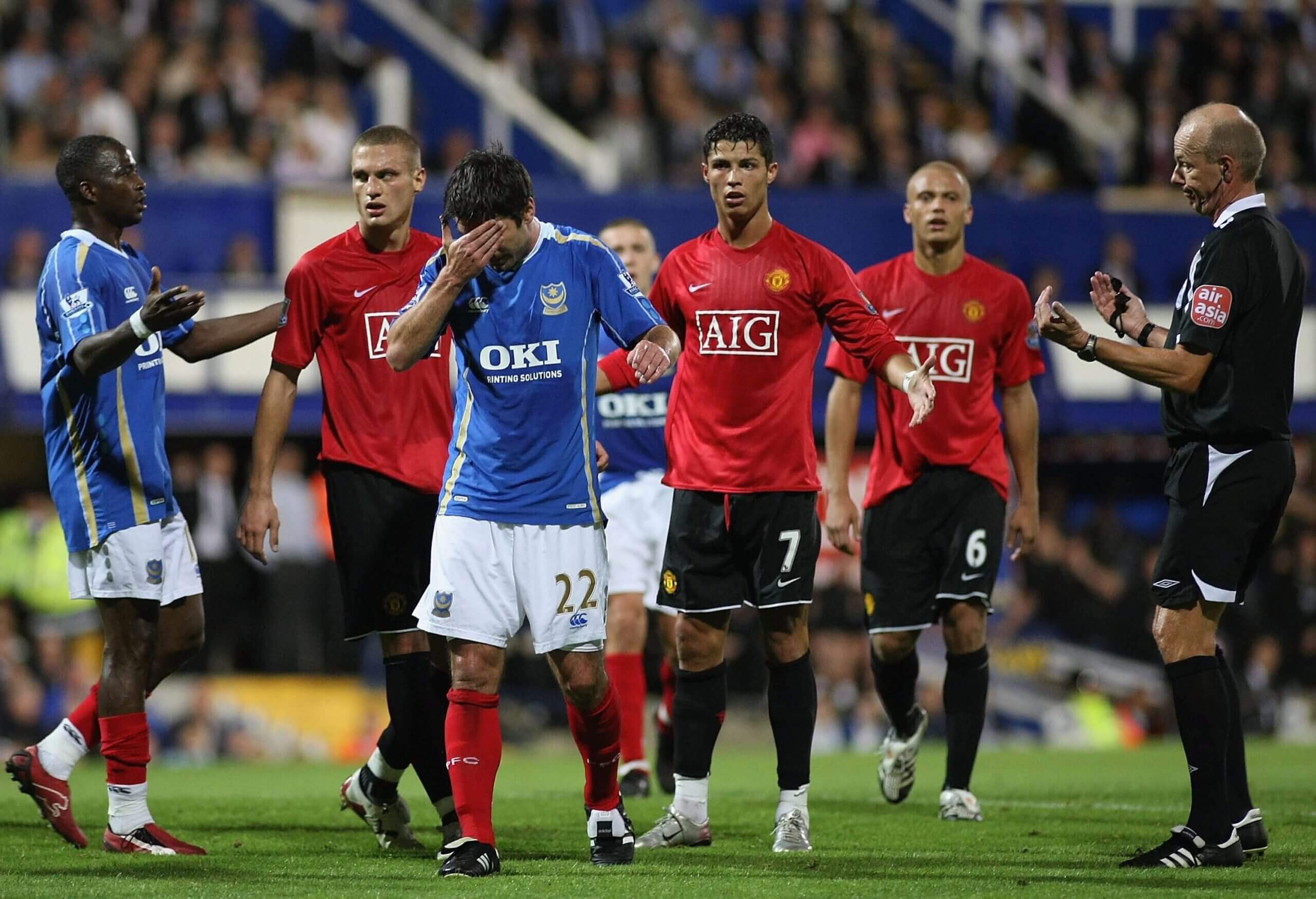
Richard Hughes clasps his face after being butted by Cristiano Ronaldo (Matthew Peters/Manchester United via Getty Images)
Hughes understood that a key part of his game was knowing when to stop counter-attacks, and “being selective where I should pick yellow cards up”.
One moment he remembered especially was a “waist-high” tackle on Wigan Athletic’s Mario Melchiot towards the end of a season when, as a Portsmouth midfielder, he helped the team escape relegation despite seeming doomed.
Portsmouth were 2-1 up at the time and the Dutch defender had sight of goal. “It was something I grew up with,” he told The News, Portsmouth’s local newspaper. “Either the man gets past you or the ball. Never both together.”
Understanding his limitations proved to be key to his longevity. “If you feel valued at a level you aspire to play, it’s worth it,” he reasoned.
Across seven years in the Premier League with Portsmouth, he would never feature more than 26 times in a campaign. He averaged just 17 appearances a season but he described that record as a “calculated decision”, because rather than claim at the end of his career he had featured in hundreds of games in the lower leagues of English football, he would prefer to say he had played at Old Trafford or Anfield.
And however unlikely the journey has been, Anfield, seemingly, is where his future now lies.
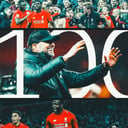
GO DEEPER
Klopp’s 1,000 goals: The complete breakdown – plus our favourites
(Top photo: Richard Hughes, centre, at Bournemouth; AFC Bournemouth)
